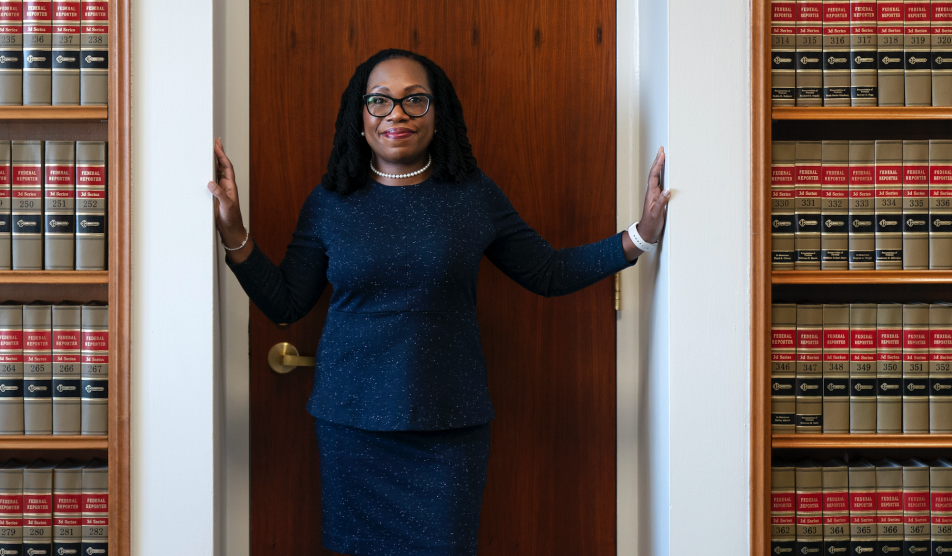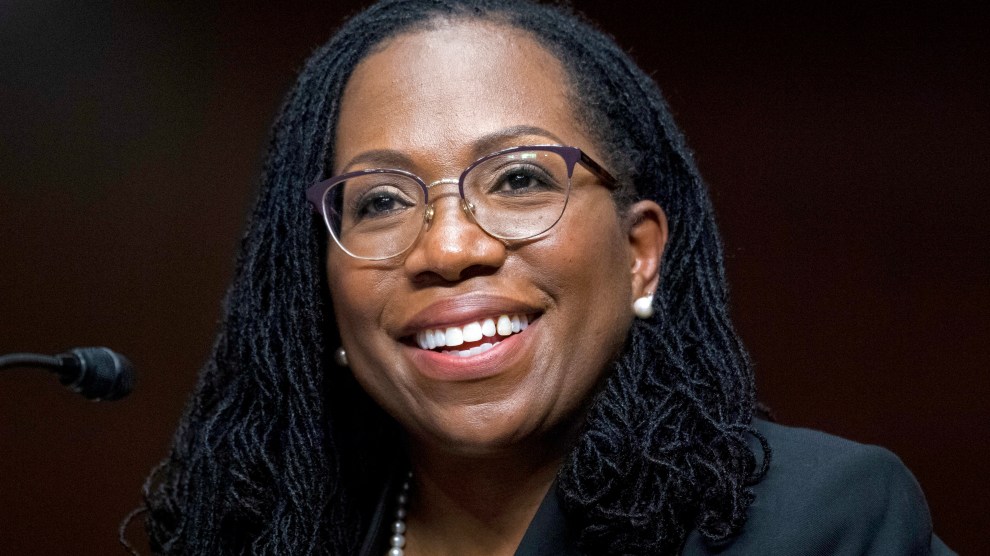
AP
President Joe Biden is set to announce Ketanji Brown Jackson to replace Stephen Breyer on the Supreme Court of the United States, the New York Times and CNN are reporting this morning.
By picking Jackson, Biden will fulfill his campaign trail promise to nominate the first Black woman to serve on the Court. The announcement is expected to set off a fierce but swift battle in the Senate. Almost certain to lose their tenuous majority in November, Democrats plan to move Jackson quickly through the process, much in the way that Republicans confirmed Amy Coney Barrett after the death of Ruth Bader Ginsburg, weeks before the 2020 election. As my colleague Stephanie Mencimer wrote, Jackson would be the first public defender to serve on the Supreme Court in 30 years:
Among the Black women who’ve surfaced as frontrunners for Biden’s first Supreme Court pick, there’s only one with significant experience as a public defender. Ketanji Brown Jackson was confirmed to the DC Circuit in June to fill the seat vacated by Merrick Garland when Biden tapped him as attorney general. She spent two years working in the DC federal defender office representing indigent defendants, included a Guantanamo Bay detainee accused of terrorism. Jackson also served as assistant special counsel and later the vice chair of the US Sentencing Commission, a body created by Congress to reduce sentencing disparities and increase transparency in federal criminal sentencing. And in private practice, she helped file amicus briefs in Supreme Court cases involving the indefinite detention of other Guantanamo Bay detainees. That’s more criminal defense work than any other candidate on the shortlist.
However, a successful confirmation will not alter the ultra-conservative makeup of the court so much as preserve the status quo. Jackson would join a court dominated by a 6-3 conservative supermajority that has shown a willingness to overturn precedent to further a right-wing agenda on a wide range of issues, from abortion to voting rights. Jackson will likely spend much of her early tenure as a justice writing dissents from the minority as her colleagues continue their project of enshrining conservative jurisprudence.
This is a breaking news post. We’ll have more information as it becomes available.












